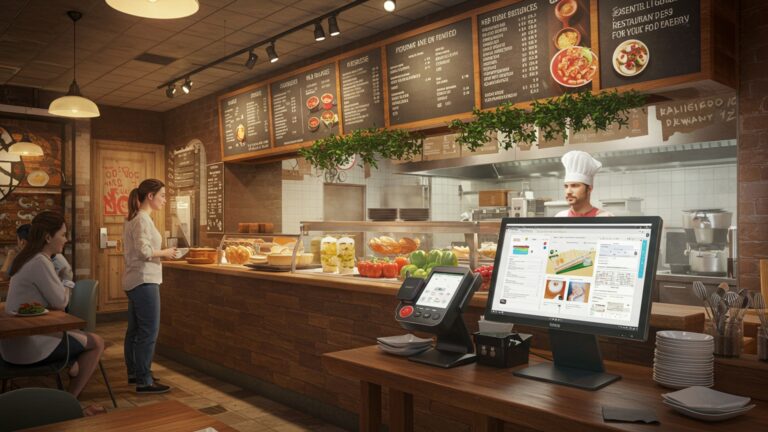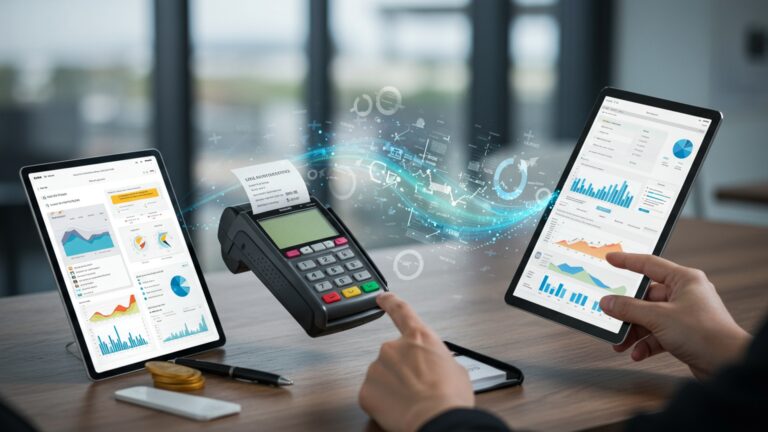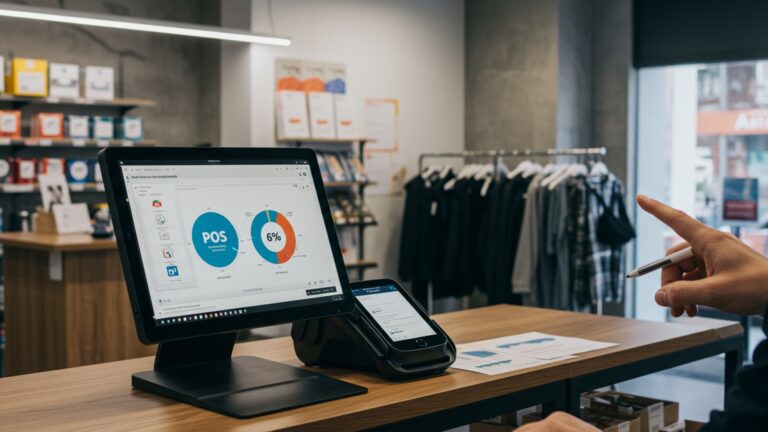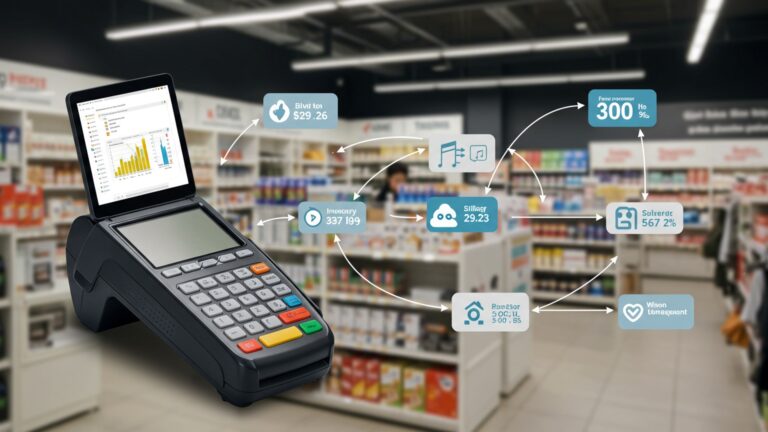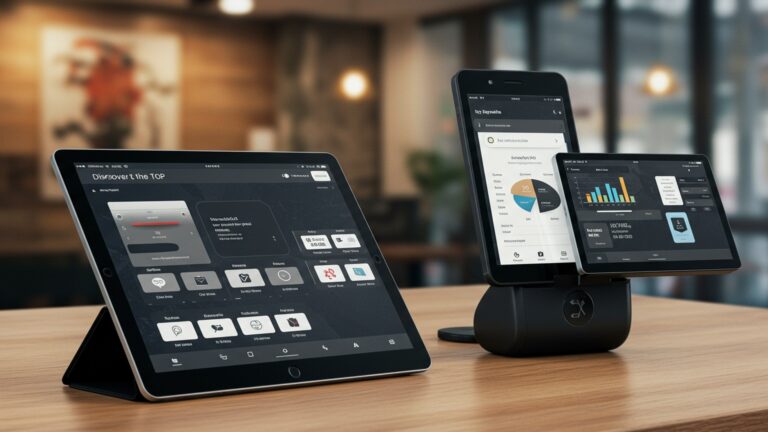How to Choose the Best POS Software in India Your Essential Guide
Navigating India’s dynamic retail and hospitality sectors demands more than just processing payments; it requires a strategic technology partner. With the explosion of digital transactions, especially UPI, businesses from bustling cafes to sprawling fashion outlets critically need an integrated system that streamlines operations, manages inventory in real-time. enhances customer engagement. The shift towards cloud-based solutions and mobile POS empowers owners with remote access and actionable analytics, moving beyond traditional billing to comprehensive business management. Identifying the best POS software in India means evaluating its scalability, robust features like CRM integration. its ability to adapt to evolving market demands, ensuring your enterprise remains competitive and future-ready.
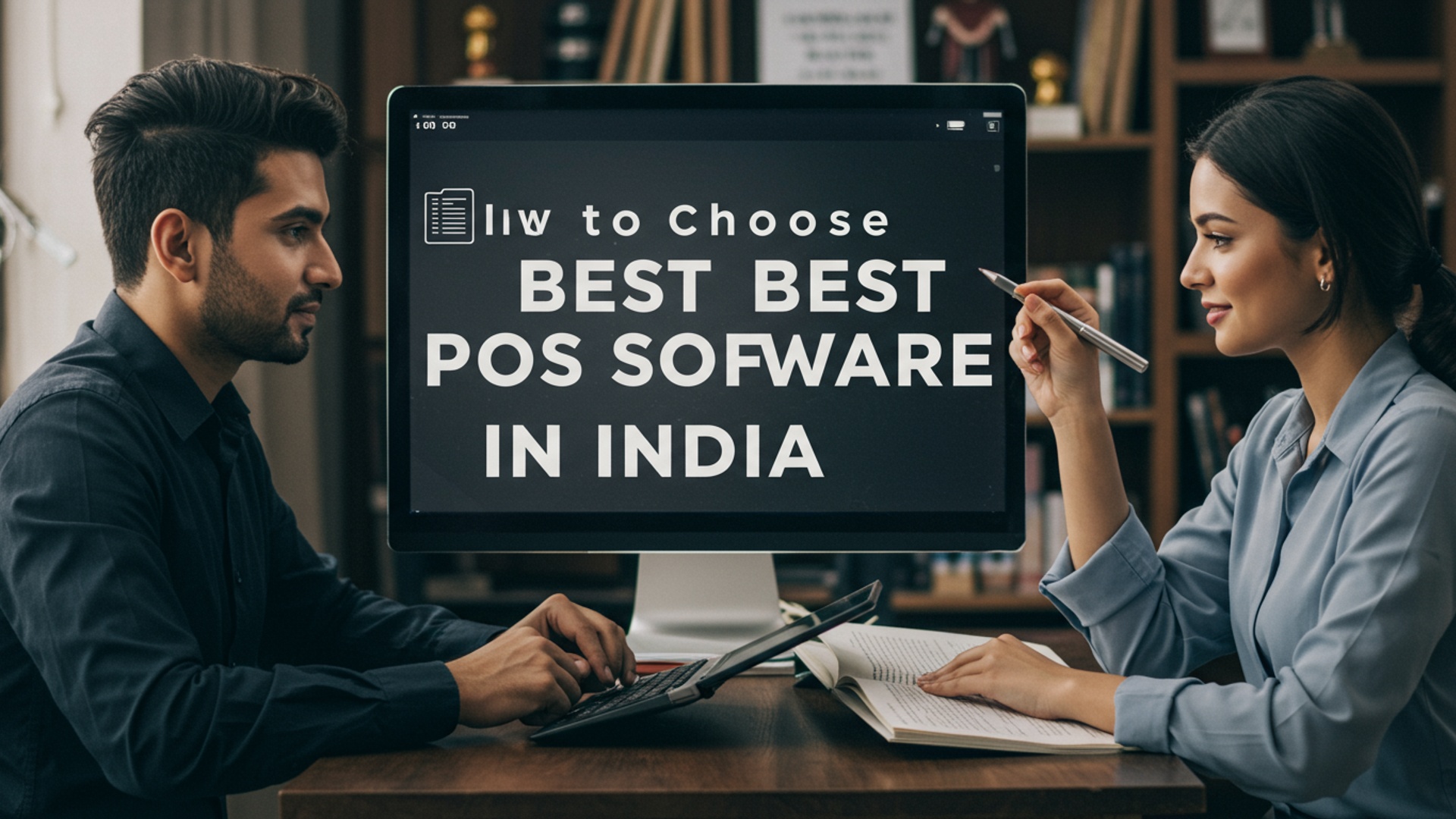
Understanding Point-of-Sale (POS) Software in the Indian Context
In today’s fast-paced retail and service landscape, a Point-of-Sale (POS) system is far more than just a cash register. It’s the central nervous system of your business operations, especially crucial for businesses aiming for efficiency and growth in India. A POS system facilitates transactions and integrates various aspects of your business, from inventory management to customer relationship management. For Indian businesses, the right POS software can be the difference between merely surviving and thriving, enabling seamless operations amidst diverse market demands and regulatory environments.
- What is POS Software? At its core, POS software is a system that processes and records transactions between a business and its customers. It calculates the amount owed, records the sale. helps manage the flow of goods and services. Modern POS systems go far beyond this, offering comprehensive business management tools that streamline various aspects of operations.
- Why is it Crucial for Indian Businesses? India’s diverse market, with its mix of traditional and modern retail, requires solutions that can adapt. From managing Goods and Services Tax (GST) compliance to handling various payment methods (UPI, cards, cash). catering to a wide customer base, the best POS software in India needs to be robust and flexible. It helps streamline operations, reduce manual errors. provides valuable insights into business performance, ultimately driving profitability and customer satisfaction.
Key Features to Prioritize in Your POS Software Selection
When searching for the best POS software in India, a feature-rich system can significantly enhance your operational efficiency and customer experience. Consider these critical functionalities:
- Inventory Management: This is paramount. Look for features that allow real-time tracking of stock levels, automated reorder points, vendor management. multi-location inventory support. For instance, a fashion retailer in Mumbai needs to track different sizes, colors. designs across multiple outlets seamlessly, preventing stockouts and overstocking.
- Sales and Transaction Processing: Beyond basic billing, the software should support various payment methods (cash, card, UPI, wallets), offer discounts, process returns/exchanges. handle gift cards. Speed and accuracy at checkout are vital for customer satisfaction and reducing queues, especially during peak hours.
- Customer Relationship Management (CRM): The ability to capture customer data, track purchase history, manage loyalty programs. offer personalized promotions can significantly boost repeat business. A cafe in Bengaluru, for example, could use this to offer a free coffee after every 10 purchases, fostering customer loyalty.
- Reporting and Analytics: Robust reporting tools provide insights into sales trends, peak hours, best-selling products. employee performance. This data is invaluable for making informed business decisions, helping you identify opportunities, address challenges. optimize operations.
- Employee Management: Track employee shifts, sales performance, commissions. access levels. This feature simplifies payroll, performance reviews. ensures proper accountability within your team.
- Integrations: A truly powerful POS system integrates seamlessly with other essential business tools.
- Payment Gateways: Essential for smooth digital transactions, supporting popular Indian payment methods.
- Accounting Software: (e. g. , Tally, Zoho Books) for simplified bookkeeping, automated reconciliation. crucial GST compliance in India.
- E-commerce Platforms: (e. g. , Shopify, WooCommerce) for a unified online and offline sales experience, ensuring consistent inventory and pricing.
- Multi-Store Capabilities: If you operate or plan to operate multiple branches, ensure the POS can centralize data, inventory. reporting across all locations, providing a holistic view of your entire business.
- Offline Mode: India sometimes faces connectivity challenges. An offline mode ensures your sales operations don’t halt during internet outages, storing transactions locally and syncing data automatically once connectivity is restored.
- Security: Data protection (customer, sales, financial) is non-negotiable. Look for features like user access controls, data encryption. Payment Card Industry Data Security Standard (PCI DSS) compliance for secure card payments.
Deployment Models: Cloud vs. On-Premise POS
The choice between cloud-based and on-premise POS software significantly impacts your operational flexibility, cost. data management. Understanding the distinctions is crucial when selecting the best POS software in India for your specific needs.
| Feature | Cloud-Based POS | On-Premise POS |
|---|---|---|
| Deployment | Software hosted on remote servers, accessed via internet browser or app. | Software installed directly on your local servers and computers. |
| Cost Structure | Typically subscription-based (monthly/annually), lower upfront capital expenditure. | Higher upfront cost (software license, hardware, server), potentially lower ongoing subscription but higher maintenance. |
| Accessibility | Access from anywhere, any device with internet. Ideal for multi-location businesses or remote management. | Access primarily from local network. Remote access requires additional, often complex, setup. |
| Maintenance & Updates | Managed by the vendor, automatic and seamless updates, minimal IT involvement. | Managed by your IT team, manual updates, requiring dedicated IT resources. |
| Data Backup | Automatic cloud backups, managed by vendor with robust disaster recovery protocols. | Manual backups, managed by your IT team, requiring diligent implementation to prevent data loss. |
| Scalability | Easily scalable; add or remove users/locations/features as needed with minimal effort. | Scaling requires additional hardware and licenses, which can be time-consuming and costly. |
| Security Responsibility | Vendor is responsible for server and infrastructure security. You maintain strong internet security practices on your end. | You are responsible for all data, network. physical server security. |
| Offline Capability | Many offer an robust offline mode that stores transactions locally and syncs when online. | Works independently of internet connection for core functions, though updates and external integrations might need it. |
For most Indian SMEs, cloud-based solutions are often preferred due to lower upfront costs, easier maintenance, greater flexibility. built-in scalability, making them strong contenders for the best POS software in India.
Industry-Specific POS Solutions: Tailoring to Your Business
While core POS functionalities remain consistent, different industries have unique operational demands that the best POS software in India should address. Generic solutions might not offer the specialized tools you need, potentially hindering efficiency.
- Retail (Fashion, Electronics, Grocery):
- Fashion: Needs robust inventory for variants (size, color, style), layaway options, customer order management. strong CRM for loyalty programs.
- Electronics: Requires serial number tracking, warranty management, repair tracking. seamless integration with service management modules.
- Grocery: Demands fast checkout, rapid barcode scanning for thousands of SKUs, weight-scale integration, perishable goods management with expiry dates. support for bulk sales.
- Restaurants/Cafes:
- Table management, kitchen display systems (KDS) for efficient order flow, menu customization with modifiers, splitting bills. crucial integration with popular food delivery apps (e. g. , Zomato, Swiggy) are critical. A bustling restaurant in Delhi will find a KDS invaluable for expediting orders and reducing errors.
- Salons/Spas:
- Appointment scheduling, service package management, staff commission tracking, detailed client history. online booking integration are essential for managing a service-oriented business efficiently.
- Service-Based Businesses (e. g. , repair shops, dry cleaners):
- Job tracking, service order management, client communication tools for updates. often integration with inventory for parts are crucial for managing diverse service requests.
Always seek a solution that understands the nuances of your industry. For example, a small boutique in Goa would benefit from a POS that handles seasonal sales and tourist demographics, which a generic system might overlook, whereas a large supermarket chain would need robust multi-store inventory and pricing management.
Evaluating Providers, Support. Scalability
Choosing the best POS software in India also involves a thorough evaluation of the vendor and their service offerings. A great product can be undermined by poor support, leading to operational bottlenecks and frustration.
- Pricing Models: comprehend whether it’s a one-time purchase, a monthly/annual subscription, or transaction-based. Factor in hidden costs like hardware, setup fees, training. additional feature modules. Always get a clear breakdown of all potential costs.
- Customer Support:
- Is 24/7 support available, especially vital for businesses operating long hours?
- Do they offer support in local Indian languages, which can be critical for effective problem resolution?
- What are their response times and channels (phone, email, chat, in-person)?
- “We once had a critical issue with our POS during peak hours. their 24/7 local support saved us from significant losses,” recalls a restaurant owner from Chennai. “Access to immediate, competent help is non-negotiable for us.”
- Training: Does the vendor provide comprehensive training for you and your staff? Ease of adoption is key to maximizing your investment and ensuring smooth operations from day one. Look for online tutorials, documentation. live training sessions.
- Scalability: Can the software grow with your business? If you plan to open more branches, expand your product line, or increase transaction volume, ensure the POS can handle increased complexity without requiring a complete overhaul. The best POS software in India should accommodate your future aspirations.
- User Reviews and Reputation: Check independent review platforms (e. g. , Capterra, G2, Trustpilot) and ask for references from businesses in your industry. A vendor’s reputation for reliability and customer satisfaction speaks volumes about their commitment.
- Local Compliance: Confirm the software is fully compliant with Indian tax regulations, especially GST. supports all relevant local payment methods, including UPI QR codes and various digital wallets.
Actionable Steps to Choose the Best POS Software in India
Making the final decision requires a structured approach. Follow these steps to ensure you select the ideal POS system for your business, one that truly aligns with your operational goals and budget.
- 1. Assess Your Specific Business Needs:
- List your absolute must-have features – what problems do you need the POS to solve immediately?
- Identify your pain points with current systems (if any) and how a new POS can address them.
- Consider your business size, industry, current operational workflows. future growth plans.
- 2. Define Your Budget:
- Determine what you can realistically spend on initial setup (hardware, software license/first year subscription) and ongoing costs (monthly/annual fees, support, consumables).
- Don’t just look at the software cost; include hardware, training. potential integration fees for a comprehensive budget.
- 3. Research and Shortlist Providers:
- Look for vendors specifically catering to the Indian market or those with a strong, proven presence here.
- Read reviews, compare features against your defined needs. identify 3-5 strong contenders for the best POS software in India.
- 4. Request Demos and Free Trials:
- Hands-on experience is invaluable. Test the user interface, key features. overall ease of use yourself.
- Involve your staff in the demo process – they are the primary users and their feedback is crucial for adoption.
- Test critical workflows specific to your business, such as processing returns or managing inventory.
- 5. Verify Local Compliance and Support:
- Confirm robust GST integration, comprehensive UPI payment support. the availability of local, responsive customer service.
- “We initially chose a system because it had excellent international reviews. later realized their Indian support was lacking. GST compliance became a constant headache,” shared a retailer from Pune, highlighting the critical importance of local focus.
- 6. Negotiate and Review Contracts:
- Don’t hesitate to negotiate pricing or ask for custom packages tailored to your specific requirements.
- Carefully read the terms of service, cancellation policies, data ownership clauses. support agreements before committing to avoid future surprises.
Conclusion
Choosing the ideal POS software in India transcends mere functionality; it’s about finding a strategic partner that understands the unique pulse of the Indian market. Ultimately, your decision should empower growth, not just manage transactions. From my observations, many businesses overlook the critical need for seamless integration with local payment methods like UPI and robust GST compliance, which are non-negotiable for success here. Always demand a thorough demo. don’t hesitate to ask for references from similar Indian businesses. Remember, a great POS system for India isn’t just about bells and whistles; it’s about reliable local support and future-proofing your operations against emerging trends like the digital payments revolution. As you move forward, prioritize scalability and a vendor that truly acts as an extension of your team. This careful consideration today will unlock unparalleled efficiency, enhance customer experiences. set your business on an undeniable trajectory of success.
More Articles
How to Select and Implement POS Software A Comprehensive Guide for Business Success
How to Select the Perfect POS Software for Your Retail Business Needs
How to Choose the Best POS Software to Streamline Your Sales
Mastering Cloud Based POS Software How to Boost Your Business Efficiency
How to Choose the Best Cloud POS for Your Indian Restaurant 5 Tips
FAQs
What exactly is POS software. why is it such a big deal for businesses in India?
Simply put, POS (Point of Sale) software is what helps you process sales transactions. But it’s much more than just a cash register. For Indian businesses, it’s crucial for tracking inventory, managing customer data, generating sales reports. even handling staff, all of which boosts efficiency and helps you make smarter business decisions.
What are the absolute non-negotiable features I should look for in a good POS system?
Definitely prioritize robust inventory management to avoid stockouts or overstocking, comprehensive sales reporting to comprehend your performance, customer relationship management (CRM) for loyalty programs. seamless integration with various payment methods, including digital options popular in India like UPI.
Are there specific Indian market considerations when choosing POS software?
Absolutely! Make sure the software is fully compliant with Indian GST regulations. Look for integration with local payment gateways (like UPI, Paytm, PhonePe). if your business has multiple outlets or specific regional needs, consider features that support that, like multi-store management or even local language options.
Cloud-based or on-premise: Which POS system type is better for me?
It largely depends on your specific needs. Cloud-based systems are generally more flexible, accessible from anywhere. get automatic updates, often with a subscription model. On-premise solutions give you more control over your data and don’t rely on an internet connection as much for core functions. require more upfront investment and self-maintenance.
How much should I budget for POS software in India. what influences the cost?
Prices vary quite a bit. You’ll find everything from free basic versions to premium solutions costing thousands annually. Factors influencing the cost include the number of features, the number of terminals or users, whether it’s cloud or on-premise. the level of support. It’s often a monthly or annual subscription, so look at the total value, not just the lowest price tag.
What kind of customer support and training should a reliable POS vendor offer?
Good support is key! Look for vendors who offer timely technical assistance, ideally through multiple channels like phone, email, or chat. They should also provide thorough onboarding, training for your staff. regular updates to the software. Local support can be a huge plus for quick resolution of issues specific to the Indian market.
Can I try out the software before committing to a purchase?
Definitely! Most reputable POS providers offer free trials or product demos. It’s highly recommended to take advantage of these. This allows you to test out the features, see how user-friendly it is. ensure it truly fits your business operations before making a financial commitment.

